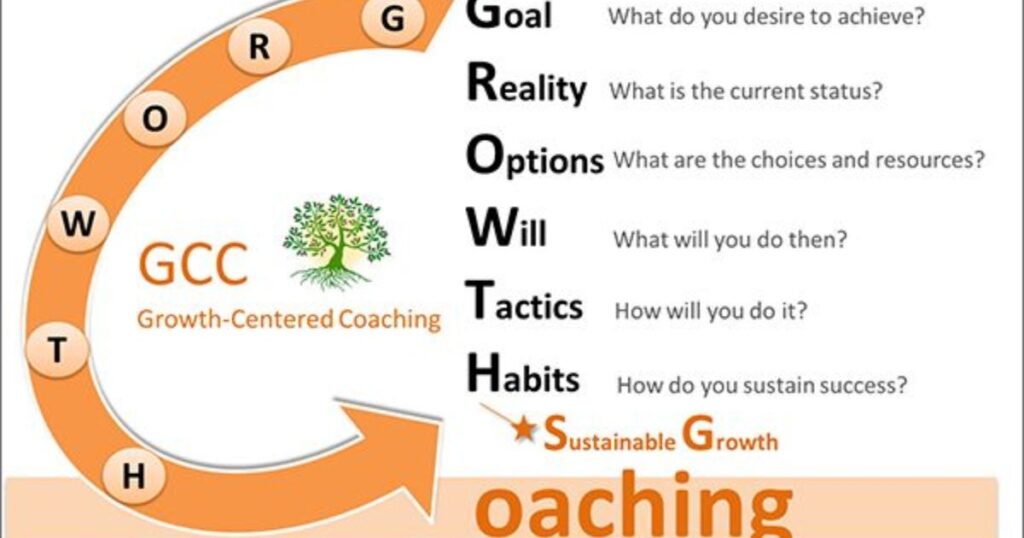In today’s fast-paced business world, effective leadership is the cornerstone of organizational success. As the demands on executives continue to grow, many are turning to leadership executive coaching to unlock their potential and lead with confidence.
This comprehensive guide will explore how executive coaching can transform your leadership skills, boost your self-awareness, and drive your organization to new heights.
The Importance of Leadership Development
Leadership isn’t just about making decisions or giving orders. It’s about inspiring others, fostering innovation, and creating a positive work culture that drives success. In an ever-changing business landscape, continuous leadership development is crucial.
Why invest in leadership development?
- Improves organizational performance
- Enhances employee engagement and retention
- Fosters innovation and adaptability
- Builds a strong leadership pipeline
As Andrew Richardson, a renowned leadership expert, notes, “Leadership development is not a one-time event, but a lifelong journey of growth and self-discovery.”
What is Executive Coaching?

What is Executive Coaching
Executive coaching is a personalized, one-on-one development process designed to enhance leadership skills and drive performance. Unlike traditional training programs, executive coaching takes a tailored approach, focusing on the unique needs and goals of each leader.
At its core, executive coaching involves:
- Identifying areas for improvement
- Setting clear, achievable goals
- Developing strategies for growth
- Providing ongoing support and accountability
PedroVazPaulo Consulting, a leader in executive coaching, defines it as “a transformative partnership that empowers leaders to reach their full potential and drive organizational success.”
Benefits of Executive Coaching
The impact of executive coaching can be profound, touching every aspect of a leader’s performance. Let’s explore the key benefits in depth:
1. Enhanced Leadership Skills
Executive coaching helps leaders sharpen their skills across various domains, leading to more effective and impactful leadership. In the realm of decision-making, coaching enables leaders to develop a more strategic approach.
They learn to gather and analyze relevant information, consider multiple perspectives, and anticipate potential consequences before making choices. This results in more informed, thoughtful decisions that align with long-term organizational goals.
Communication is another critical area where coaching can drive significant improvements. Leaders work on articulating their vision clearly and compellingly, ensuring their message resonates with diverse audiences. They also develop active listening skills, helping them better understand and address the needs and concerns of their team members and stakeholders.
Strategic thinking is perhaps one of the most valuable skills honed through executive coaching. Leaders learn to step back from day-to-day operations and consider the bigger picture.
They develop the ability to anticipate future trends, identify potential opportunities and threats, and create comprehensive plans to guide their organization forward. This forward-thinking approach is crucial for long-term success and sustainability.
2. Increased Self-Awareness
Self-awareness is the foundation of effective leadership, and executive coaching provides a structured approach to developing this critical trait. Through various assessments, feedback mechanisms, and reflective exercises, leaders gain a deeper understanding of their strengths and weaknesses. This insight allows them to leverage their strengths more effectively and work on areas that need improvement.
Coaching also helps leaders recognize how their actions and decisions impact others. This awareness is crucial for building strong relationships, creating a positive work environment, and driving team performance. Leaders learn to consider the perspectives and needs of others, leading to more empathetic and inclusive leadership.
Enhanced emotional intelligence is another significant outcome of increased self-awareness. Leaders become more adept at recognizing and managing their own emotions, as well as understanding and influencing the emotions of others. This skill is invaluable in high-pressure situations, conflict resolution, and motivating teams.
3. Better Decision-Making
Coaching equips leaders with tools and frameworks to enhance their decision-making capabilities. They learn to analyze complex situations from multiple angles, considering short-term impacts and long-term implications. This comprehensive approach leads to more balanced and effective decisions.
Coaches often introduce leaders to various decision-making models and techniques, helping them choose the right approach for different situations. Leaders also learn to balance intuition with data-driven insights, leveraging both their experience and objective information to make sound choices.
Moreover, coaching helps leaders become more comfortable with ambiguity and uncertainty – common features of today’s business landscape. They develop the confidence to make decisions even when all the information isn’t available, and the flexibility to adjust course as new data emerges.
4. Improved Team Performance
The benefits of executive coaching extend beyond the individual leader, often resulting in improved team performance. As leaders enhance their skills and self-awareness, they become more effective at delegation and empowerment. They learn to trust their team members, assign tasks that align with individual strengths, and provide the right level of support and autonomy.
Increased team motivation and engagement are common outcomes of improved leadership. Coached executives typically become more adept at recognizing and appreciating their team members’ contributions, providing constructive feedback, and creating a positive work environment. This leads to higher job satisfaction and increased productivity.
Collaboration and innovation within teams often flourish under leaders who have undergone coaching. These leaders are better equipped to foster an environment where diverse ideas are welcomed, creativity is encouraged, and calculated risks are supported. They learn to facilitate effective brainstorming sessions, manage team dynamics, and create a culture of continuous improvement.
5. Accelerated Growth and Development
Executive coaching accelerates personal and professional growth by providing a structured yet flexible framework for development. Coaches create a safe space for experimentation and learning, allowing leaders to step out of their comfort zones and try new approaches without fear of judgment.
A key aspect of coaching is challenging limiting beliefs and expanding possibilities. Leaders often hold unconscious beliefs about themselves or their capabilities that can hold them back. Skilled coaches help identify and reframe these beliefs, opening up new avenues for growth and achievement.
Perhaps most importantly, coaching fosters a growth mindset and a commitment to continuous learning. Leaders develop the habit of seeking feedback, reflecting on experiences, and actively looking for opportunities to improve.
This mindset not only benefits the leader but also sets a powerful example for the entire organization, creating a culture of ongoing development and adaptability.
Common Challenges Faced by Leaders
Leadership comes with its share of challenges, and executive coaching can be instrumental in addressing these common hurdles:
Managing Change:
In today’s rapidly evolving business environment, the ability to lead organizational transformation is crucial. Coaches work with leaders to develop strategies for implementing change effectively, communicating the vision clearly, and overcoming resistance. They help leaders anticipate potential obstacles and create plans to address them proactively.
Building High-Performing Teams:
Assembling and leading a high-performing team is a complex task that requires a range of skills. Through coaching, leaders learn to identify and nurture talent, foster a culture of accountability, and drive innovation within their teams.
They develop techniques for balancing individual strengths with team cohesion and aligning team goals with organizational objectives.
Balancing Priorities:
The demands on leaders’ time and attention are often overwhelming. Executive coaching helps leaders master time management techniques, enabling them to focus on high-impact activities.
They learn to delegate effectively, set clear priorities, and make strategic decisions about where to invest their energy. Coaches also work with leaders to develop systems for managing information overload and maintaining focus on long-term goals amidst daily pressures.
Dealing with Conflict:
Conflict is inevitable in any organization, and how leaders handle it can significantly impact team dynamics and productivity. Coaching equips leaders with tools for effective conflict resolution, helping them address issues promptly and constructively.
Leaders learn to have difficult conversations with empathy and clarity, turning potential conflicts into opportunities for growth and improved understanding.
Maintaining Work-Life Balance:
The pressure to be constantly available and deliver results can lead to burnout if not managed effectively. Executive coaches help leaders develop strategies for maintaining a healthy work-life balance.
This includes setting boundaries, managing stress, and prioritizing self-care. Leaders learn to recognize the signs of burnout in themselves and their team members, and develop practices that promote sustainable high performance.
The Executive Coaching Process

The Executive Coaching Process
A typical executive coaching engagement follows these key steps:
Initial Assessment and Goal Setting:
The coaching process usually begins with a comprehensive assessment of the leader’s current skills, challenges, and aspirations. This often includes leadership style evaluations and 360-degree feedback from colleagues, superiors, and direct reports.
Based on this assessment, the coach and leader work together to define SMART (Specific, Measurable, Achievable, Relevant, Time-bound) goals for the coaching engagement.
One-on-One Coaching Sessions:
The heart of the coaching process lies in regular, focused meetings between the coach and the leader. These sessions are tailored to the individual’s needs and goals, providing a confidential space for open discussion, reflection, and strategizing.
Coaches use various techniques to facilitate insight and growth, such as powerful questioning, role-playing, and targeted exercises.
Feedback and Insights:
Throughout the coaching process, the coach provides ongoing feedback and insights to the leader. This includes constructive criticism delivered in a way that promotes growth rather than defensiveness.
Coaches also guide leaders through self-reflection exercises, helping them gain deeper insights into their behaviors, motivations, and impact on others. Strategies for behavioral change are developed collaboratively, ensuring they are both effective and sustainable.
Action Planning and Accountability:
Coaching is not just about gaining insights; it’s about translating those insights into action. Coaches work with leaders to create actionable plans for implementing new behaviors and strategies.
They help establish methods for tracking progress and overcoming obstacles. The coach also serves as an accountability partner, helping the leader stay committed to their goals and action plans.
Evaluation and Follow-up:
As the coaching engagement progresses, regular evaluations are conducted to measure success against the initial goals. Strategies are adjusted as needed based on progress and changing circumstances.
Many coaching engagements also include follow-up sessions after the main program concludes, helping to ensure that new behaviors and skills are sustained over time.
Finding the Right Executive Coach
Choosing the right coach is crucial for a successful coaching experience. Consider these factors:
Experience and Expertise:
Look for a coach with relevant industry experience and a track record of success in executive coaching.
Certifications from reputable coaching organizations can be a good indicator of expertise. It’s also beneficial if the coach has personal leadership experience, as this can provide valuable real-world insights.
Chemistry and Fit:
The relationship between coach and leader is fundamental to the success of the coaching process. Look for a coach whose communication style and personality are compatible with yours.
There should be a sense of trust and rapport from the initial interactions. Remember, you’ll be working closely with this person and discussing sensitive issues, so feeling comfortable and respected is crucial.
References and Success Stories:
Don’t hesitate to ask for references or case studies from potential coaches. Speaking with other leaders who have worked with the coach can provide valuable insights into their methods and effectiveness. Look for coaches who have helped leaders overcome challenges similar to yours.
Alignment with Goals and Values:
Ensure that the coach’s approach and philosophy align with your goals and values. Some coaches specialize in certain areas (e.g., executive presence, strategic thinking, emotional intelligence), so consider what specific areas you want to focus on.
Also, consider whether the coach’s values and ethical standards align with yours and those of your organization.
Support and Resources:
Many coaches offer additional resources beyond one-on-one sessions. These might include assessments, online learning platforms, or access to a network of experts. Consider what additional support might be valuable for your development and look for coaches who can provide these resources.
Case Studies: Success Stories from Executive Coaching
Let’s look at three real-world examples of how executive coaching has transformed leaders:
Case Study 1: From Micromanager to Empowering Leader
John, a senior executive in a multinational corporation, was known for his micromanagement style. This approach was stifling creativity and hindering team performance. Through coaching, John embarked on a journey of self-discovery and skill development.
The coaching process helped John recognize the root causes of his micromanagement tendencies – a combination of perfectionism and a lack of trust in his team. His coach worked with him to develop strategies for delegating effectively and empowering his team members. John learned to:
- Clearly communicate expectations and objectives
- Provide support without taking over
- Give constructive feedback that encourages growth
- Recognize and celebrate team successes
As John implemented these new approaches, he saw a dramatic shift in his team’s performance and morale. Team members began to take more initiative, come up with innovative solutions, and work more collaboratively. The result was a 30% increase in team productivity and a 40% improvement in employee satisfaction scores.
John’s transformation not only benefited his immediate team but also set a new standard for leadership within the organization. His success story became a catalyst for other executives to explore coaching as a means of enhancing their leadership skills.
Case Study 2: Overcoming Imposter Syndrome
Sarah, a high-potential leader in a fast-growing startup, struggled with imposter syndrome. Despite her track record of success, she constantly doubted her abilities and felt undeserving of her role.
This self-doubt was holding her back from taking on bigger challenges and fully stepping into her leadership potential.
Through executive coaching, Sarah worked on:
- Identifying and challenging her self-limiting beliefs
- Recognizing and owning her strengths and accomplishments
- Developing strategies for managing self-doubt
- Building a strong professional network for support and validation
The coaching process helped Sarah reframe her experiences and see her unique value to the organization. She learned to view challenges as opportunities for growth rather than threats to her competence. As her confidence grew, Sarah began to take on more ambitious projects and speak up more in executive meetings.
The impact of Sarah’s transformation was significant. She successfully led her team through a major product launch, resulting in a 50% increase in company revenue.
Her newfound confidence and leadership presence inspired her team to perform at a higher level, and she became a role model for other women in the organization aspiring to leadership positions.
Case Study 3: Transitioning into a New Leadership Role
Mark, an experienced manager, was promoted to a senior leadership role in his company. While he had a strong track record in his previous position, the new role presented unfamiliar challenges.
He needed to quickly adapt to a broader scope of responsibility, build relationships with new stakeholders, and set a strategic direction for his department.
Executive coaching supported Mark in:
- Developing a strategic vision for his department
- Enhancing his executive presence and communication skills
- Building and leveraging a network of key stakeholders
- Balancing operational details with big-picture thinking
Through the coaching process, Mark gained clarity on his leadership style and how to adapt it to his new role. He worked on articulating a compelling vision for his department and aligning his team around shared goals.
The coach also helped Mark develop strategies for building strong relationships across the organization, a crucial factor in his ability to influence and drive change.
As a result of the coaching, Mark successfully integrated into his new role, achieving a 25% increase in department efficiency within six months. He received positive feedback from both his team and peers on his leadership approach, and he was able to drive several key initiatives that had previously been stalled.
These case studies illustrate the transformative power of executive coaching across various leadership challenges.
Whether it’s changing ingrained behaviors, overcoming internal barriers, or navigating new responsibilities, coaching can provide the support, strategies, and accountability needed for significant personal and professional growth.
How to Measure the Effectiveness of Executive Coaching

How to Measure the Effectiveness of Executive Coaching
Measuring the impact of coaching is essential for justifying the investment and ensuring continuous improvement. Here are key metrics to consider:
Goal Achievement:
Compare outcomes to the initial objectives set at the beginning of the coaching engagement. This could include both quantitative metrics (e.g., financial performance, project completion rates) and qualitative assessments of leadership effectiveness.
Feedback and Surveys:
Conduct 360-degree feedback follow-ups to gauge changes in leadership behavior as perceived by colleagues, superiors, and direct reports. Team satisfaction surveys can also provide insights into the ripple effects of improved leadership.
Performance Metrics:
Track relevant Key Performance Indicators (KPIs) that may be influenced by improved leadership, such as team productivity, employee retention rates, or customer satisfaction scores.
Also consider the financial impact, looking at metrics like revenue growth or cost savings that may be attributable to enhanced leadership capabilities.
Self-Reflection and Self-Assessment:
Encourage leaders to engage in ongoing self-reflection through journaling or regular self-assessments. This can provide valuable insights into changes in mindset, decision-making processes, and overall leadership approach.
Long-Term Impact:
Monitor career progression and sustained behavioral changes over time. This could include tracking promotions, expanded responsibilities, or long-term improvements in areas like employee engagement or organizational culture.
It’s important to note that some benefits of coaching may be intangible or take time to manifest fully. A combination of quantitative and qualitative measures often provides the most comprehensive picture of coaching effectiveness.
Alternatives to Executive Coaching
While executive coaching is highly effective, other development options can complement or, in some cases, serve as alternatives to coaching:
Leadership Training Programs: These structured programs offer a more standardized approach to leadership development. They can be beneficial for learning specific skills or theories and often provide opportunities for networking with other leaders. However, they lack the personalized approach of one-on-one coaching.
Mentoring and Sponsorship: Pairing with a more experienced leader within the organization can provide valuable insights and guidance. Mentors can share their experiences and help navigate organizational politics. Sponsorship goes a step further, with the sponsor actively advocating for the leader’s career advancement.
Peer Learning and Networking: Joining peer groups or leadership circles allows for the exchange of ideas and experiences with other leaders facing similar challenges. This can be particularly valuable for gaining diverse perspectives and building a support network.
Online Learning and Resources: The digital age has made a wealth of leadership resources available online. From self-paced courses to webinars and podcasts, these options offer flexibility and a wide range of topics. However, they may lack the accountability and personalized feedback of coaching.
Internal Talent Development Programs: Many organizations offer their own leadership development initiatives. These can include rotational assignments, stretch projects, or formal training programs. They have the advantage of being tailored to the specific needs and culture of the organization.
Each of these alternatives has its merits, and the best approach often involves a combination of different development methods. However, executive coaching offers a uniquely personalized and in-depth approach to leadership development that can be particularly effective for addressing specific challenges and accelerating growth.
Conclusion: Investing in Your Leadership Executive Coaching
Leadership executive coaching is a powerful tool for unlocking your potential and leading with confidence. By providing personalized guidance, actionable strategies, and ongoing support, coaching can transform your leadership skills and drive organizational success.
As you consider your leadership development journey, remember the words of management guru Peter Drucker: “The best way to predict the future is to create it.” Executive coaching empowers you to create a future of exceptional leadership and organizational excellence.
Are you ready to unlock your leadership potential? Consider taking the next step in your leadership journey with executive coaching. The transformation awaits.

Hello, I’m Henry, a committed writer at supersbusiness.com, where I specialize in Business, Finance, Real Estate, and News. My articles explore a wide range of topics, providing readers with insightful and engaging content. With a knack for simplifying complex ideas, I aim to make my writing accessible and informative for all. Stay informed on the latest trends and insights by following me on supersbusiness.com.

